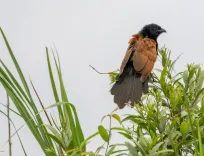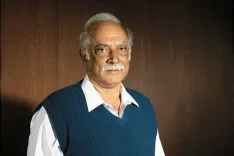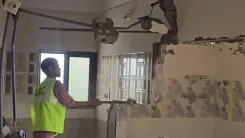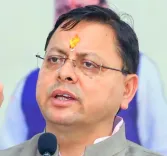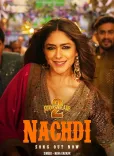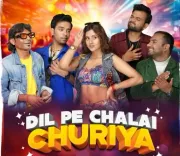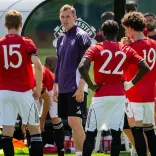Is This the First Time in India That Ex-CJIs, CMs, and Speakers Are Appearing Before the JPC on ONOE?
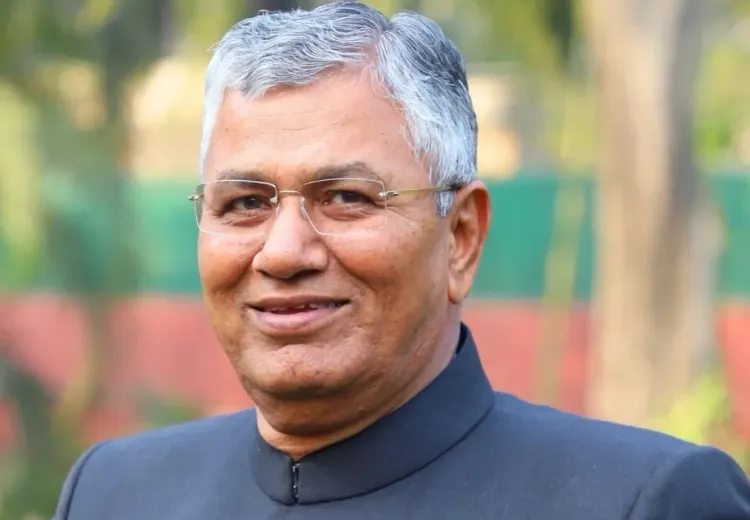
Synopsis
Key Takeaways
- Historic Engagement: Esteemed constitutional authorities are engaging in electoral reform discussions.
- Public Sentiment Shift: The public increasingly supports the One Nation One Election initiative.
- Cross-Party Participation: Leaders from various political backgrounds are contributing to the dialogue.
- Potential for Change: ONOE could streamline governance and reduce electoral disruptions.
- Looking Ahead: A timeline exists for potential enactment, with implications for future elections.
Jaipur, July 14 (NationPress) In a groundbreaking event for independent India, esteemed constitutional figures—including former Chief Justices of India, Supreme Court judges, Chief Ministers, and Assembly Speakers—are engaging in discussions regarding the One Nation One Election (ONOE) initiative before the Joint Parliamentary Committee (JPC), as stated by BJP MP and JPC Chairperson P.P. Chaudhary.
Describing this moment as historic and unprecedented, Chaudhary highlighted the magnitude and significance of these consultations.
In an exclusive conversation with IANS, he expressed, “For the first time since independence, former Chief Justices of India, former Supreme Court judges, Chief Ministers, Deputy Chief Ministers, and Assembly Speakers are presenting their perspectives to a parliamentary committee. This occurrence is unparalleled in independent India.”
Chaudhary emphasized that this discussion transcends political affiliations and focuses on national interest. “In Mumbai, the BJP holds power, yet their Chief Minister participated. Similarly, in Himachal, where Congress governs, their Chief Minister also contributed valuable insights. This demonstrates the seriousness with which this matter is approached across party divides,” he asserted.
During its nationwide visits, the committee has noticed a significant shift in public opinion.
Chaudhary noted, “Previously, we witnessed political groups opposing one another regarding ONOE. Now, the genuine divide is between the political elite and the public, who are advocating for this reform.”
He recalled a discussion in Punjab where academics, vice chancellors, and even national awardees—many of whom were supporters of AAP or Congress—expressed strong endorsement for ONOE.
“They conveyed to us that they do not vote for the BJP but recognize the necessity for this reform. Frequent elections disrupt education for students, especially in government schools attended by underprivileged children. Teachers become occupied with election duties, and learning suffers,” he recounted to IANS.
In Himachal Pradesh, the Chief Minister and his team actively engaged in the consultation process, Chaudhary mentioned.
He stated, “Our ideological differences may exist, but this is a national concern. It will persist even after we are gone,” Chaudhary remarked.
To uphold integrity, the committee has purposely included neutral experts and legal authorities. “We aim to avoid any political bias. That’s why we are consulting former Chief Justices and legal scholars,” he explained.
Recently, former Chief Justices of India, Justice D.Y. Chandrachud and Justice J.S. Khehar, attended the JPC meeting and provided detailed presentations. “Their insightful perspectives greatly enriched our comprehension. We are not pursuing a political agenda; we are here to listen,” he added.
Furthermore, he referenced Union Home Minister Amit Shah, recalling a journalist’s inquiry about the implementation: “How can ONOE be enacted without a clear majority in the House?” Shah responded: “That’s akin to asking Mahatma Gandhi in 1945 how he could liberate India while the British still ruled. In the near future, those opposing ONOE may face significant losses.”
Chaudhary concluded, “A scenario is arising where even those against ONOE will begin to encounter public opposition. The populace recognizes the value of this concept. While certain political parties are experiencing fluctuations in their fortunes, the public views it as a crucial and significant reform,” he conveyed to IANS.
Regarding the timeline for implementation, Chaudhary stated: “While the ultimate decision rests with Parliament, hypothetically, if we submit our report by 2027/2028 and the law is enacted that same year, the next Lok Sabha elections in 2029 could occur under this new framework. Consequently, within five years, State Assembly elections would synchronize by 2034.”
He also mentioned a separate bill currently under consideration: “Once approved, it will require that all panchayat and municipal elections take place within 100 days of the state assembly elections in 2034. However, this will occur after another bill is passed.”
Chaudhary further conveyed significant feedback from former CJI Khehar during a recent meeting, stating, “This is a golden opportunity bestowed upon you to serve your nation and transform the political landscape. Seize it and deliver in a manner that future generations will remember.”

